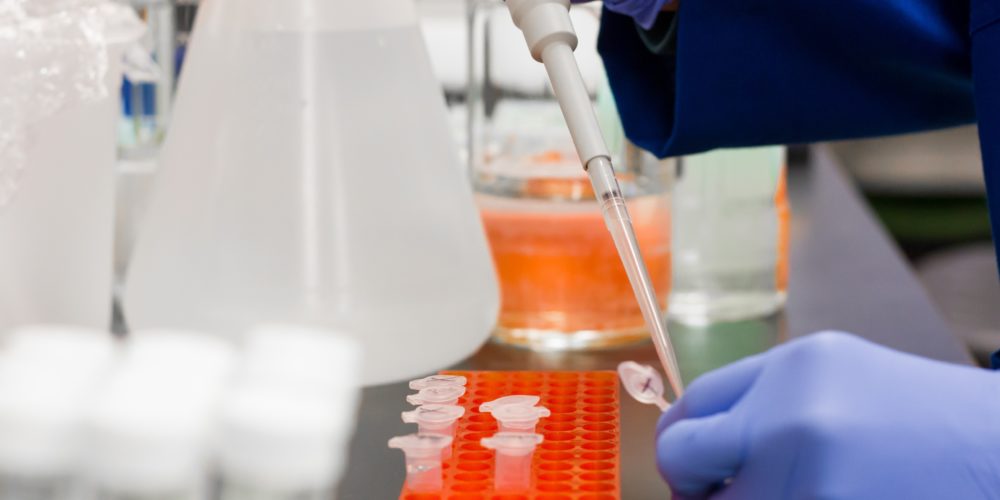
How Do Rapid Covid Tests Work?
For many, the past year-plus has been a stressful time. Our lives have been largely disrupted, and it can feel like we’re still adjusting to some “new normal.” The nature of COVID-19 symptoms creates additional anxiety for many. The possibility of contracting the virus, exhibiting no symptoms, and unknowingly passing it along to others—who may experience symptoms or are otherwise part of a vulnerable population—is a risk worth avoiding.
When it comes to diagnostic testing for COVID-19, there are two broad types of Covid tests, antigen tests (also known as rapid tests) and PCR tests. COVID-19 antigen tests are popular due to their especially-quick turnaround time (as little as ~15 minutes). PCR tests, while they have a slightly longer turnaround time (days, especially when demand is high) are considered the “gold standard” of testing, due to their superior accuracy.
How is a rapid test done?
Rapid COVID-19 antigen testing is typically considered a point-of-care test, performed at a testing site or medical facility or office, though there are at-home test versions as well. Regardless of setting, the testing process is simple and takes less than a minute to collect a sample—done by inserting a cotton-tipped swab into one or both nostrils. Once in, the swab is rotated, and then extracted.
From there, the sample is then analyzed. Antigen tests work to detect specific proteins on the surface of coronavirus molecules. When these proteins are identified in a sample, that’s a positive result.
How long does it take to get rapid Covid test results?
Point-of-care antigen test results can be delivered in as little as a few minutes, while at-home rapid tests generally take days or more. This is because after a sample is collected at home, it has to be physically sent to a laboratory for analysis, which takes time.
How accurate is a covid19 antigen test?
A number of variables can impact the accuracy of an antigen test. For example, if the test sample is improperly collected or is contaminated post-collection, it can result in an untrustworthy result. Compared with PCR tests, antigen tests are generally understood to be less accurate.
False positives with antigen testing
A false positive result incorrectly indicates the presence of SARS-CoV-2 in a sample. For people with COVID-19 symptoms, the antigen test false positive rate is quite low, at less than one percent. If, however, a false positive is suspected, a follow-up PCR test is recommended.
False negatives with antigen testing
A false negative Covid test result incorrectly indicates no signs of SARS-CoV-2, when there is, in fact, an infection. With antigen testing, false negatives are more common than false positives, occurring at a rate of around 25-30% (for individuals within the first week of experiencing possible symptoms), with even lower accuracy beyond the one-week marker.
If a negative result is the outcome, but you think you’ve been exposed and suspect a false negative, then a follow-up PCR test is recommended a few days later. And quarantine guidance should be followed in the meantime, 14 days from the date of suspected exposure.
What is the COVID-19 PCR diagnostic test?
The PCR (or polymerase chain reaction) test is widely-regarded as the gold standard for accuracy in COVID-19 testing. PCR tests, also known as molecular tests, work to detect genetic material that is specific to the SARS-CoV-2 virus. Like with antigen testing, the process of sample collection for a PCR test involves the collection of a sample (via swab), followed by laboratory analysis.
Is the PCR test for COVID19 accurate?
The PCR test is considered highly accurate, with a 98% sensitivity and near-perfect selectivity. This means that nearly every active infection is successfully detected by the test, and false positives are exceptionally rare (affecting less than 1% of tests).
False negatives are possible with PCR testing, but do not exceed 20% of tests. A majority of false negative PCR test results are understood to be caused by factors like contamination of the lab, equipment, or sample itself.
After a positive PCR test, the recommendation is to self-isolate for 10 days—from either symptom onset or the date of the positive test (if no symptoms are present). False negatives are more likely earlier on in the infection, with false negatives being quite normal on the first day of exposure and the likelihood quickly decreasing from there. If you receive a negative result and are concerned that it could be a false negative, then a follow-up test is recommended.
COVID-19 testing you can trust
BioCollections has been at the forefront of testing for 20 years, as a trusted provider for quick, reliable testing solutions at any scale. We have testing locations throughout the United States, as well as internationally, to make testing as accessible and trustworthy as possible. We offer PCR testing for COVID-19, the gold standard in diagnostic testing, with a turnaround time around 10-13 hours—much quicker than other PCR testing providers.
Visit our website to learn more about our testing solutions, or contact us with any questions you have.
